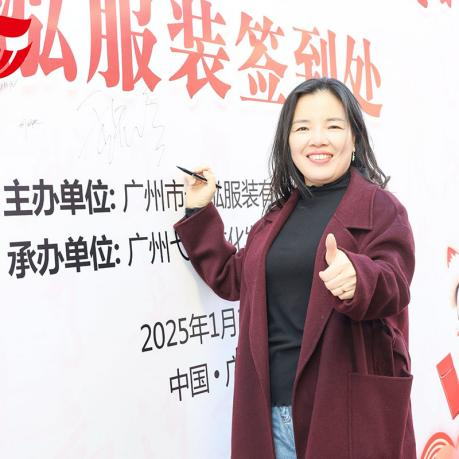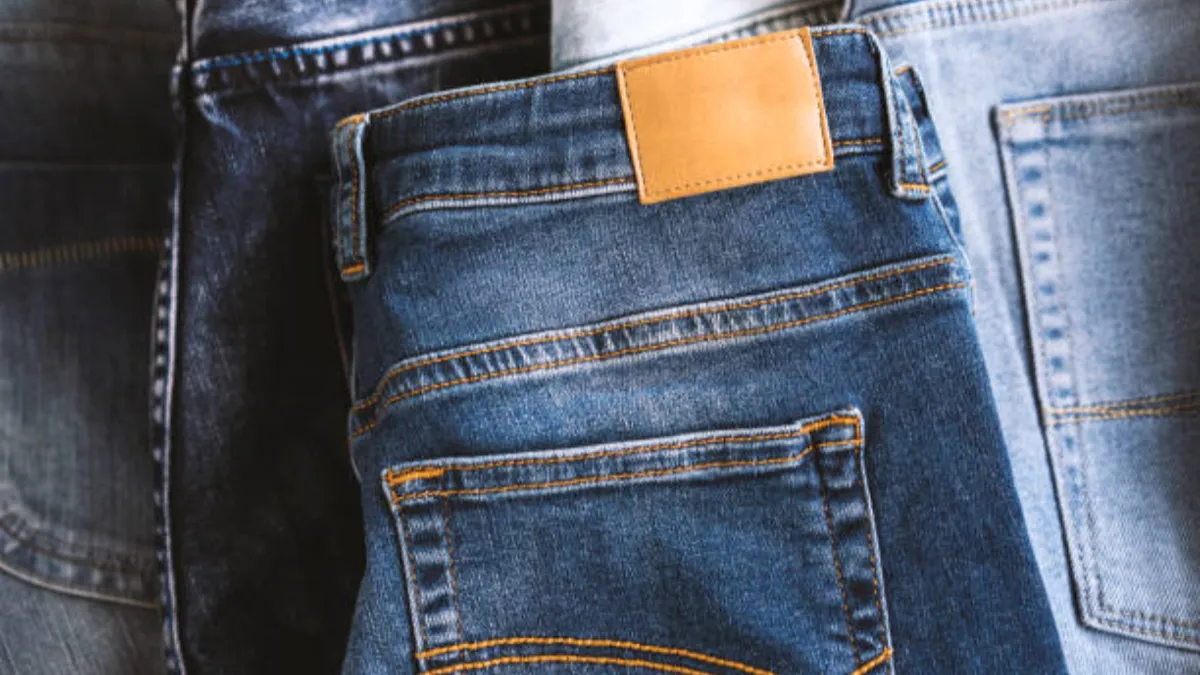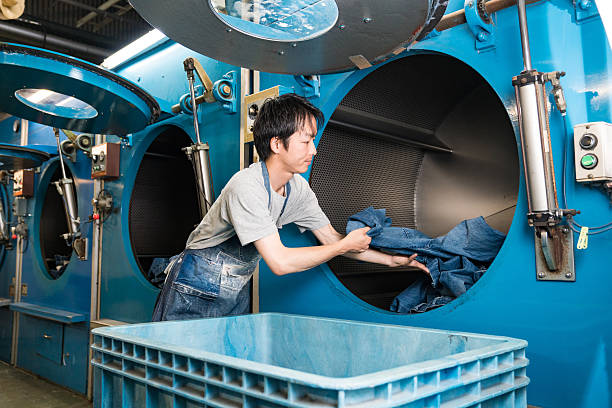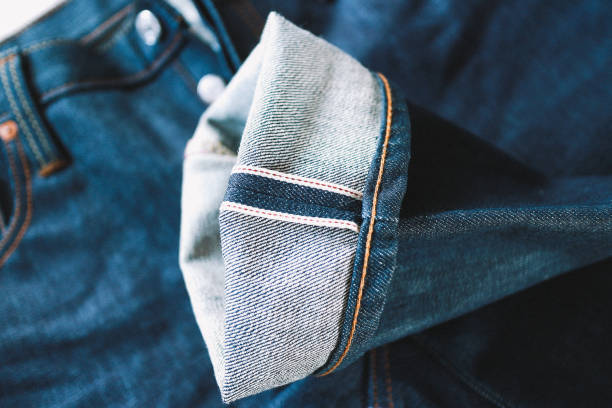Os responsáveis pela sustentabilidade e os líderes de sourcing enfrentam uma pressão crescente para validar todas as reivindicações ambientais na produção de denim e, ao mesmo tempo, atingir o design, custo, e metas de conformidade. Este guia perfis 10 marcas com práticas comprovadas e cadeias de fornecimento transparentes, mostrando como os materiais certificados, processos de circuito fechado, e os padrões éticos de trabalho agora definem a qualidade do fornecedor – e como esses fatores moldam diretamente a reputação da marca, força da margem, e resiliência a longo prazo no fornecimento sustentável de denim.
Por que as práticas de jeans sustentáveis são importantes hoje
O jeans é há muito tempo um item básico na moda global, no entanto, os métodos de produção tradicionais consomem grandes quantidades de água e energia, ao mesmo tempo que dependem fortemente de produtos químicos. Estas práticas degradam os ecossistemas e ameaçam a saúde da comunidade. À medida que a sustentabilidade passa de uma preocupação de nicho para uma prioridade central de conformidade e marca, empresas que adotam a fabricação responsável ganham vantagem no atendimento às demandas regulatórias e na superação das expectativas dos clientes.
Impacto ambiental e social do jeans convencional
O cultivo de algodão não orgânico esgota a saúde do solo e exige o uso substancial de pesticidas, enquanto corantes sintéticos tóxicos contaminam cursos de água, prejudicando a biodiversidade e a saúde pública. Em muitos centros de produção, técnicas ultrapassadas contribuem para a poluição persistente que prejudica a qualidade de vida local.
Vantagens Estratégicas do Fornecimento Sustentável
A parceria com fornecedores certificados de denim sustentável aumenta a credibilidade da marca e proporciona diferenciação de mercado. O uso eficiente de recursos reduz os custos operacionais e apoia o meio ambiente, social, e governança (ESG) metas. Quantidades mínimas de pedido baixas combinadas com prototipagem rápida permitem que as marcas alinhem os compromissos ecológicos com as demandas do mercado em rápida mudança.
Inovações da indústria que permitem sustentabilidade escalável
Avanços como integração de fibras orgânicas e recicladas, tecnologias de corantes que economizam água, e o acabamento a laser tornam possível a produção sustentável de grandes volumes sem sacrificar a qualidade. A integração vertical melhora a rastreabilidade desde a origem do algodão até a lavagem final, permitindo que marcas modernas de jeans fundam sustentabilidade com forte desempenho comercial.
Principal 10 Marcas de jeans sustentáveis em 2026
Encontrar fabricantes confiáveis e acessíveis é fundamental para você que busca equilibrar custos, qualidade, e entrega oportuna. A seguir 10 marcas de jeans sustentáveis oferecem fortes capacidades de produção, designs diversos, e experiência comprovada no atendimento a marcas de vestuário globais.
Jeans Changhong
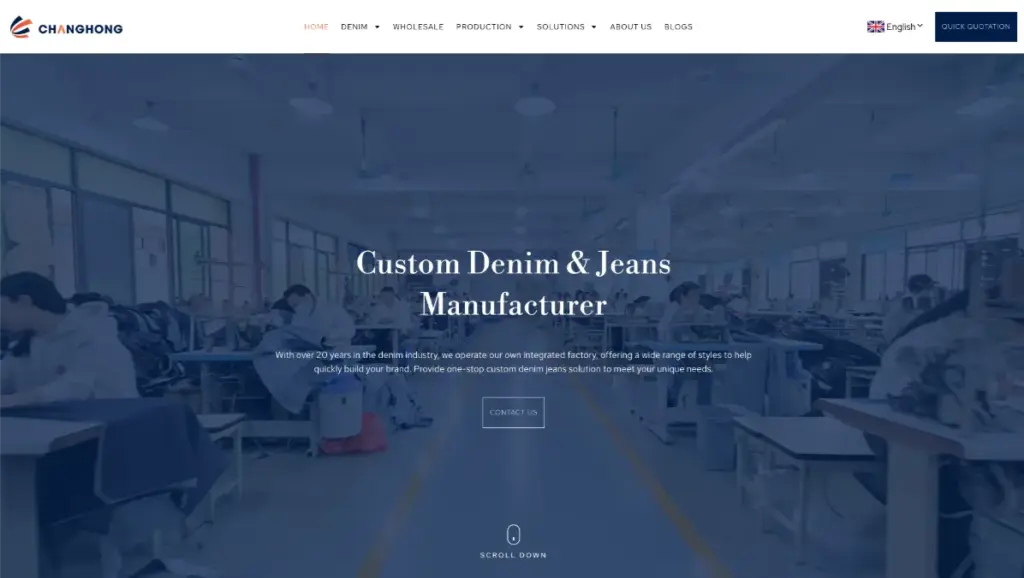
Changhong é especializada na produção de jeans, shorts, Saias, vestidos, macacões, macacão, jaquetas, e camisas. A empresa opera uma fábrica integrada de 30.000㎡, com capacidade de produção mensal superior 300,000 pedaços e mais 500 novidades a cada mês. Todos os produtos são personalizáveis para homens, mulheres, e crianças, adaptado às necessidades de atacado e marca própria. Changhong usa tecido jeans ecológico e segue padrões de qualidade certificados (ISO9001, BSCI), apoiando marcas que buscam confiabilidade, fabricação sustentável. Prototipagem rápida, MOQs flexíveis, e a logística robusta da cadeia de suprimentos permitem que os parceiros escalem rapidamente e lancem novos projetos com eficiência. Se você procura um fabricante de denim sustentável para expandir seu negócio de denim com produtos inovadores e responsáveis, cooperar com Changhong hoje.
Informações importantes:
- Localização: China
- Principais produtos: ODM/OEM personalizado Jeans jeans, shorts, Saias & vestidos, macacão, jaquetas, camisas
- Principais Mercados: Marcas de jeans emergentes e estabelecidas que exigem personalização, sustentável, e produção certificada
Prós & Contras:
| O que amamos | Coisas a considerar |
|---|---|
|
|
Abençoe o jeans
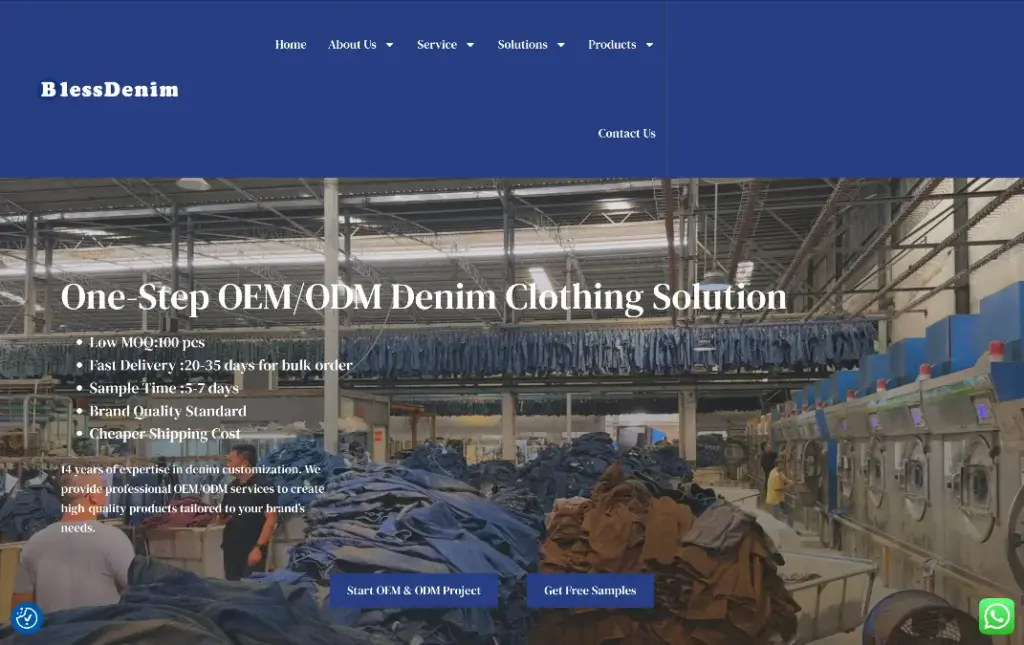
Abençoe o jeans, com sede na China, oferece produção de jeans personalizados e de marca própria com foco em materiais e processos sustentáveis. A empresa se diferencia por fornecer baixas quantidades mínimas de pedido, tempos de resposta rápidos, e lavagens ecológicas. Usando material denim reciclado certificado premium, Bless Denim prioriza flexibilidade e velocidade para atender uma variedade de clientes B2B, embora o reconhecimento de sua marca permaneça limitado em escala global. A gama de produtos do fabricante atende principalmente a clientes empresariais que procuram, soluções sustentáveis de fabricação de jeans adaptadas às suas necessidades.
Informações importantes:
- Localização: China
- Principais produtos: Jeans de marca própria/personalizada
- Principais Mercados: Fabricantes e marcas B2B que buscam produção sustentável de jeans
Prós & Contras:
| O que amamos | Coisas a considerar |
|---|---|
|
|
Levi's
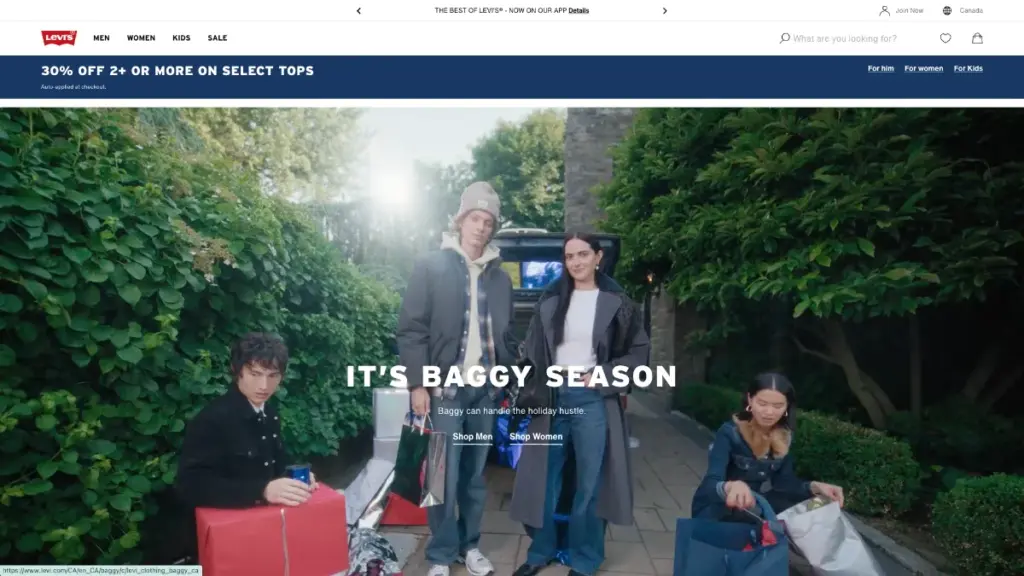
Levi's, sediada nos EUA, é uma marca icônica de jeans reconhecida mundialmente por sua durabilidade, jeans e roupas clássicas. Liderando iniciativas de sustentabilidade como Água<Menos tecnologia e uso de algodão orgânico, Levi’s visa reduzir o impacto ambiental em toda a sua cadeia produtiva. O extenso alcance global da marca proporciona acesso robusto ao mercado, mas as opções de personalização permanecem limitadas. Os prazos de produção tendem a ser mais longos devido à escala e aos processos. Os esforços sustentáveis da Levi continuam a evoluir, tornando-o um nome confiável para marcas e consumidores que buscam procedência e padrões de fabricação ecologicamente corretos.
Informações importantes:
- Localização: EUA
- Principais produtos: Jeans, roupas jeans
- Principais Mercados: Mercado consumidor global e parceiros de varejo
Prós & Contras:
| O que amamos | Coisas a considerar |
|---|---|
|
|
Reforma
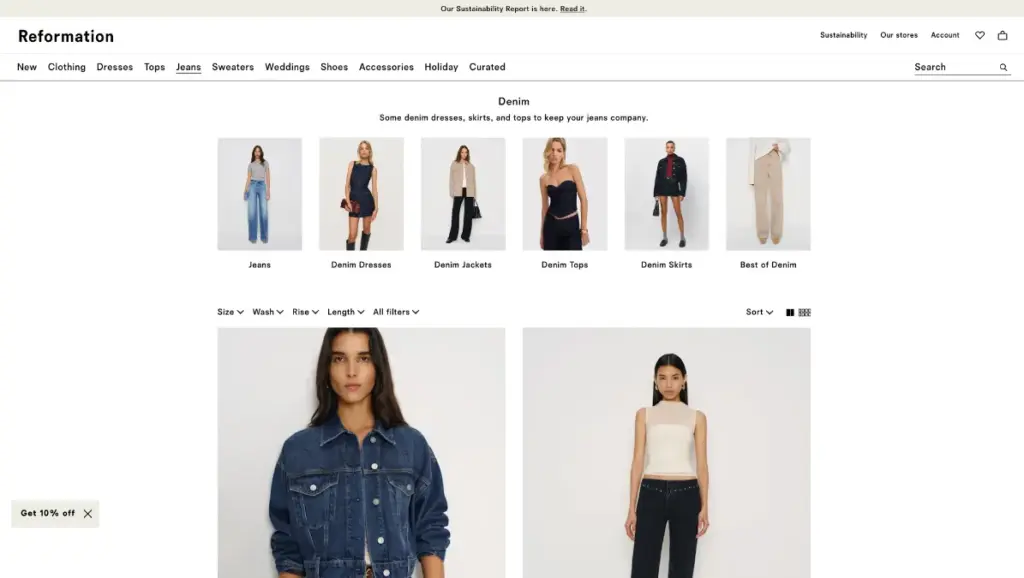
Reforma, com operações nos EUA e na Turquia, é conhecida por seus produtos jeans de algodão orgânico com certificação GOTS, incluindo jeans, Saias, e jaquetas. Os processos sustentáveis da marca utilizam corantes ecológicos e técnicas de fabricação que economizam água, juntamente com fábricas certificadas pelo comércio justo.. Posicionado no segmento premium, A Reforma enfatiza a transparência e o fornecimento ético, mas exige preços mais elevados. Os prazos de entrega são moderados, equilibrando a atenção artesanal com a escala comercial. Isto faz da Reformation um parceiro preferencial para compradores que valorizam a sustentabilidade certificada com design moderno.
Informações importantes:
- Localização: EUA/Turquia
- Principais produtos: Jeans, Saias de jeans, jaquetas
- Principais Mercados: Consumidores de moda conscientes e varejistas boutique
Prós & Contras:
| O que amamos | Coisas a considerar |
|---|---|
|
|
AG Jeans
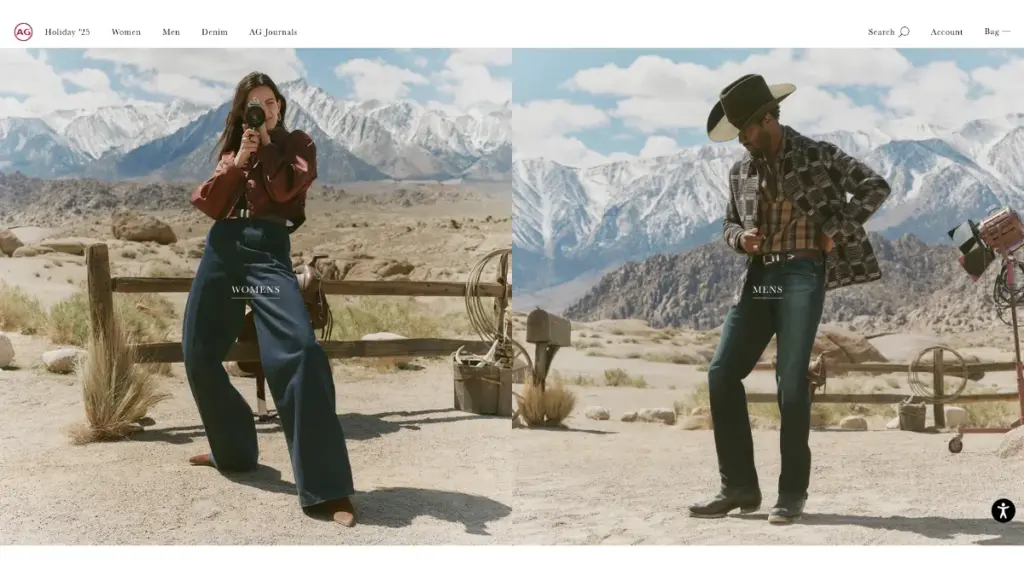
AG Jeans, uma marca de jeans premium com sede nos EUA, integra tecidos reciclados e métodos de produção sustentáveis com produtos de ganga de luxo de qualidade. A marca tem como alvo consumidores exigentes que procuram produtos de alta qualidade, jeans ecologicamente corretos. Embora a qualidade seja consistente e focada na sustentabilidade, o preço permanece alto. Os prazos de produção tendem a ser mais lentos, refletindo a atenção ao artesanato e ao fornecimento sustentável de materiais. AG Jeans apela aos compradores que priorizam o luxo combinado com a responsabilidade ambiental nas suas escolhas de fornecimento.
Informações importantes:
- Localização: EUA
- Principais produtos: Jeans premium
- Principais Mercados: Varejo de jeans de luxo e mercado consumidor
Prós & Contras:
| O que amamos | Coisas a considerar |
|---|---|
|
|
Soluções de jeans sob medida com artesanato sustentável
Faça parceria com Guangzhou Changhong para jeans personalizados premium feitos em nossa fábrica totalmente integrada. Desfrute de flexibilidade de design incomparável, pedidos mínimos baixos, e tecidos ecológicos criados para elevar o estilo e os valores da sua marca.
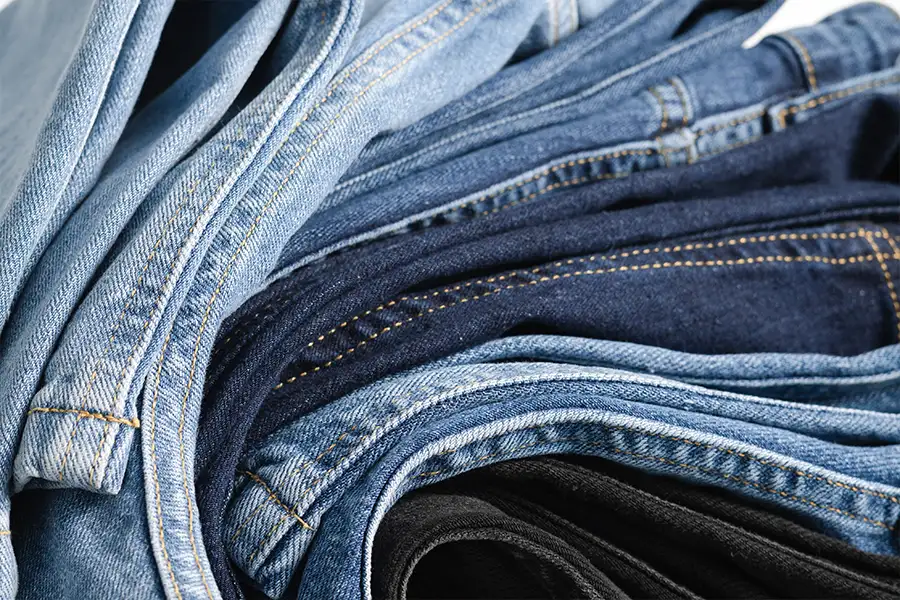
G Star RAW
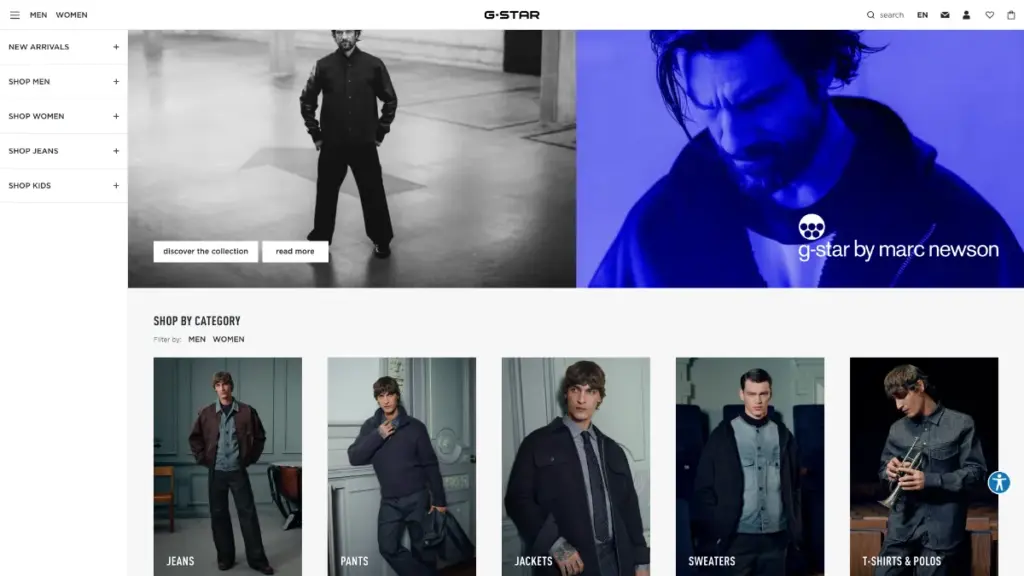
Com sede na Holanda, G-Star RAW combina streetwear denim moderno com iniciativas de sustentabilidade por meio de seu ‘RAW for the Planet’ programa. Utiliza materiais sustentáveis e inova com designs ecologicamente conscientes, atraente para marcas e consumidores que buscam estilo junto com o fornecimento responsável. Os prazos de entrega são moderados e os preços tendem para o lado superior. G-Star RAW equilibra apelo comercial com compromissos de sustentabilidade, visando clientes atentos às tendências e compradores éticos.
Informações importantes:
- Localização: Holanda
- Principais produtos: Jeans, jeans streetwear
- Principais Mercados: Consumidores de moda valorizando estilo e sustentabilidade
Prós & Contras:
| O que amamos | Coisas a considerar |
|---|---|
|
|
Outerconhecido
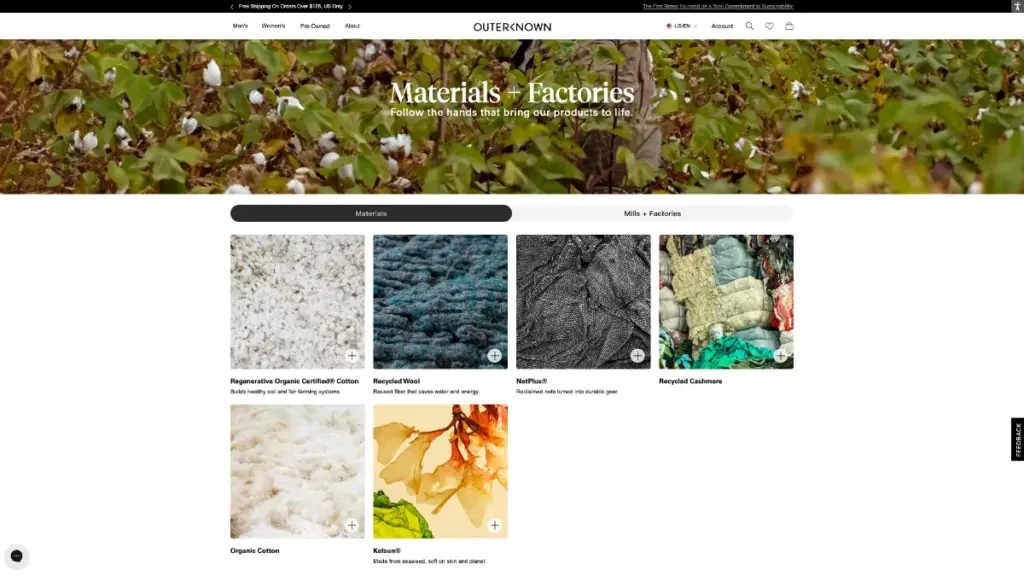
Outerconhecido, co-fundado em 2015 pelo surfista campeão mundial Kelly Slater e pelo designer John Moore, é uma marca pioneira de moda sustentável impulsionada por “ações responsáveis, mudança corajosa, e ótimas roupas.” Especializada em jeans premium e casualwear, Fontes externas de fibras ecológicas, como algodão orgânico, Algodão regenerativo orgânico certificado®, cânhamo, algodão reciclado, e lã responsável. A marca garante práticas trabalhistas éticas por meio do credenciamento da Fair Labor Association e de fábricas Fair Trade Certified™.
Outerknown também se compromete com a circularidade: é S.E.A. JEANS vem com garantia vitalícia, e sua plataforma de revenda Outerworn mantém em circulação roupas usadas. Olhando para frente, os objetivos da empresa 100% produtos circulares por 2030, enquanto inovamos com jeans reciclados por meio do Project Vermont.
Informações importantes:
- Localização: Califórnia
- Principais produtos: Jeans, jeans casual
- Principais Mercados: Marcas de consumo ético e compradores de moda sustentável
Prós & Contras:
| O que amamos | Coisas a considerar |
|---|---|
|
|
Nudie Jeans
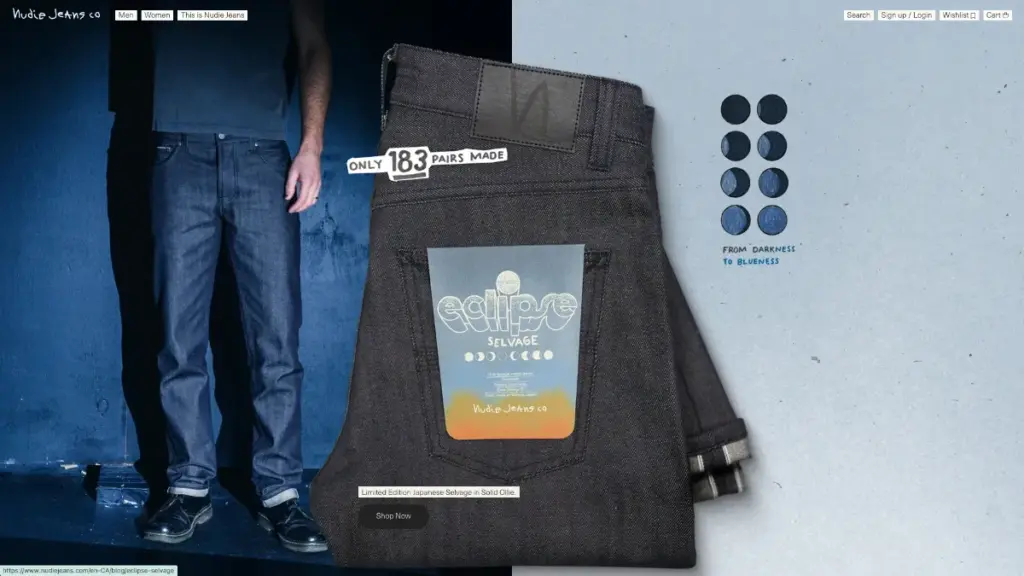
Nudie Jeans, originário da Suécia, oferece jeans e vestuário focados em tecidos orgânicos e reciclados com programas abrangentes de reparo e reciclagem. Enfatizando total transparência, circularidade, e salários justos, Nudie é líder em práticas sustentáveis de denim na Europa. Preços premium e foco regional podem limitar o alcance global, mas o seu forte espírito de sustentabilidade faz dela um fornecedor preferido para marcas que procuram soluções de ganga circulares e de origem ética.
Informações importantes:
- Localização: Suécia
- Principais produtos: Jeans, roupas jeans
- Principais Mercados: Mercados europeus de moda sustentável e consumidores conscientes
Prós & Contras:
| O que amamos | Coisas a considerar |
|---|---|
|
|
DL1961
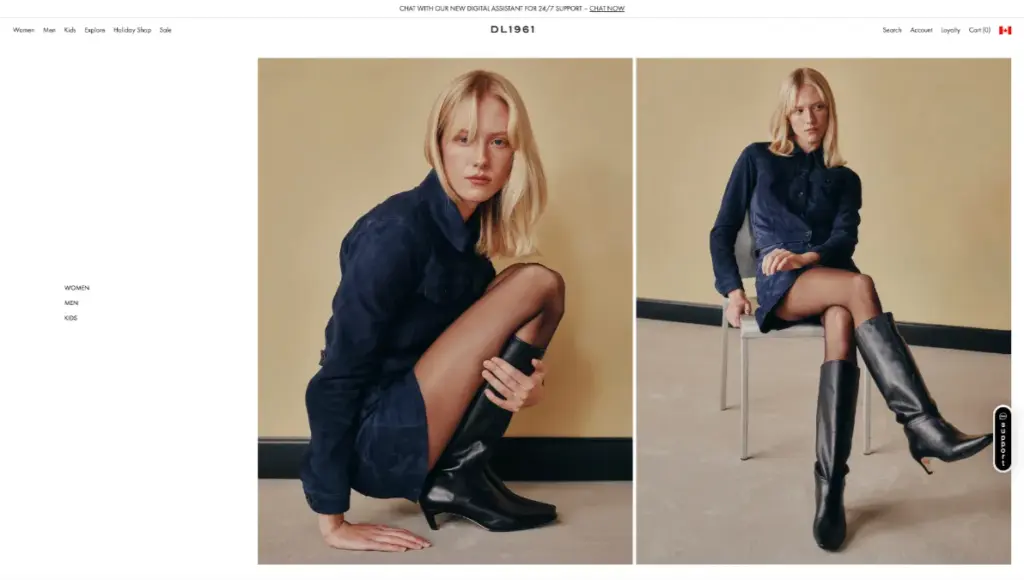
DL1961, baseado nos EUA, destaca-se pela sua integração totalmente vertical, fábricas movidas a energia solar que produzem jeans e roupas jeans. Incorpora jeans reciclado e emprega tecnologias de economia de água e energia. Posicionado no mercado premium, DL1961 combina produção sustentável inovadora com apelo de moda. A presença global limitada da marca contrasta com o seu forte compromisso ambiental e ofertas de qualidade, tornando-o uma escolha para compradores que valorizam a sustentabilidade tecnológica na fabricação de denim.
Informações importantes:
- Localização: EUA
- Principais produtos: Jeans, roupas jeans
- Principais Mercados: Roupas jeans premium e marcas de moda sustentável
Prós & Contras:
| O que amamos | Coisas a considerar |
|---|---|
|
|
Triarcado

Triarcado, uma marca canadense, é especializada em jeans stretch sem plástico com algodão orgânico e reciclado. Implementa programas de compensação de carbono e produz pequenos lotes de jeans sustentável usando tecnologias que economizam água. Oferecendo produtos de nicho a preços premium, Triarchy apresenta uma opção diferenciada de jeans sustentável para marcas que priorizam o impacto ambiental, inovação sem plástico, e produção em pequena escala. Seu foco em práticas avançadas de sustentabilidade atrai um segmento de mercado especializado.
Informações importantes:
- Localização: Canadá
- Principais produtos: Jeans, jeans sem plástico
- Principais Mercados: Compradores de marcas de jeans de nicho com consciência ecológica
Prós & Contras:
| O que amamos | Coisas a considerar |
|---|---|
|
|
Como avaliar e selecionar o melhor parceiro de jeans sustentável
Escolher o parceiro certo para denim sustentável requer um conjunto preciso de critérios que vão além do estilo e do custo. Para líderes de sourcing e gerentes de marca, a decisão afeta a conformidade, integridade do produto, e reputação da marca. A tabela abaixo consolida as principais áreas de avaliação e as implicações práticas para a sua aquisição.
| Critérios | Principais considerações |
|---|---|
| Certificações e Padrões de Sustentabilidade | Priorize fornecedores que possuam certificações como GOTS, Padrão OEKO-TEX® 100, GRS, RCS, e Comércio Justo para validar a conformidade ambiental e social. Credenciais avançadas em agricultura regenerativa ou compostabilidade refletem liderança e compromisso com a inovação, reduzindo o risco em parcerias de longo prazo. |
| Fornecimento e composição de materiais | Avalie o uso de fibras preferidas, como algodão orgânico, algodão reciclado, cânhamo, e Tencel. Exija clareza sobre proporções de materiais sustentáveis em produtos acabados e acompanhe o compromisso do fornecedor com o fornecimento regenerativo e circular para garantir o alinhamento com suas metas de sustentabilidade. |
| Processo de Fabricação e Práticas Ambientais | Procure água- e métodos energeticamente eficientes, como a reciclagem de água em circuito fechado, acabamento a laser, branqueamento com ozono, e tingimento ao ar. Parceiros que usam corantes à base de plantas, minimizando o desperdício, e a integração de hardware reciclado reduz o impacto ambiental e aumenta a prontidão para conformidade. |
| Transparência e Rastreabilidade | Marcas selecionadas que oferecem relatórios de sustentabilidade detalhados e divulgam toda a sua cadeia de fornecimento. A rastreabilidade ponta a ponta, desde a fibra bruta até a peça acabada, fortalece as trilhas de auditoria e aumenta a confiança do consumidor em suas reivindicações de sustentabilidade. |
| Responsabilidade Social e Práticas Trabalhistas | Confirme se os fornecedores oferecem salários justos, locais de trabalho seguros, e investir em programas de capacitação dos trabalhadores. Auditorias e certificações independentes fornecem garantia e ajudam a proteger contra riscos de conformidade social. |
| Iniciativas de Impacto Ambiental e Circularidade | Avaliar compromissos para reduzir as emissões de carbono, alcançar o desperdício zero, e adoção de sistemas circulares de água. Produtos projetados para durabilidade e reciclabilidade apoiam a longevidade da marca e reduzem os custos ambientais do ciclo de vida. |
| Alinhamento de marca e liderança da indústria | Avalie a reputação de mercado do parceiro, envolvimento em iniciativas da indústria, e se adequar às suas metas de sustentabilidade corporativa. Use estruturas multicritério, auditorias estruturadas, e revisões de certificação para garantir o alinhamento estratégico e minimizar os riscos de integração. |
Perguntas frequentes
O que define o jeans sustentável?
O jeans sustentável exige verificação ao longo de todo o ciclo de vida. Especifique algodão orgânico ou fibras recicladas, métodos de tingimento que economizam água, e produtos químicos de acabamento não tóxicos antes de aprovar uma fábrica. Confirme a conformidade ética do trabalho e uma pegada de baixo carbono através da documentação do fornecedor – isso oferece garantia mensurável às partes interessadas e protege a reputação da marca à medida que os clientes examinam minuciosamente a ética da produção.
Como verificar as afirmações da marca sobre sustentabilidade?
Rejeite o marketing vago – exija certificações independentes como GOTS, OEKO-TEX, ou Bluesign, e validar datas de certificados com órgãos emissores. Exigir divulgações detalhadas da cadeia de fornecimento e relatórios ambientais auditados, revisando a composição do material, medidas de conservação de água, e iniciativas de redução de resíduos, garantir que todos os números sejam apoiados por dados de terceiros, em vez de declarações auto-relatadas.
Quais certificações são mais importantes no denim sustentável?
Foco em certificações que abrangem materiais e processos de fabricação. GOTS confirma fibras orgânicas sob rígidos critérios sociais, Padrão OEKO-TEX 100 testes para substâncias nocivas em todas as fases, Bluesign reforça a gestão de produtos químicos e a eficiência de recursos, e ISO 14001 impulsiona a gestão ambiental sistemática. Implementá-los fortalece a conformidade e cria credibilidade em mercados ecologicamente conscientes.
Como reduzir o impacto da produção na fabricação de jeans?
Use métodos de acabamento, como lavagem a laser e com ozônio, para reduzir o uso de água e riscos químicos, melhorando a segurança e a eficiência. Mudança para fontes de energia renováveis, otimizar o desempenho do equipamento para reduzir as emissões, e especifique algodão reciclado ou orgânico com corantes de baixo impacto para minimizar a drenagem de recursos e as demandas de tratamento de águas residuais.
Como comunicar sustentabilidade aos compradores de forma eficaz?
Forneça materiais exatos, Certificações, e práticas de fábrica na documentação do produto para agilizar a verificação e aumentar a confiança do comprador. Apoie as reivindicações com estudos de caso ou métricas concisas – como litros de água economizados por peça de roupa – garantindo que todos os dados sejam comprovados e vinculados à melhoria contínua para evitar preocupações de lavagem verde.

